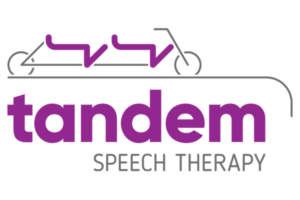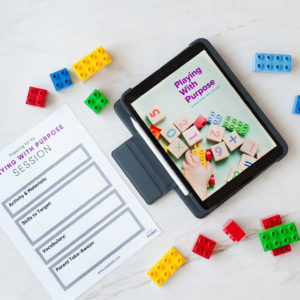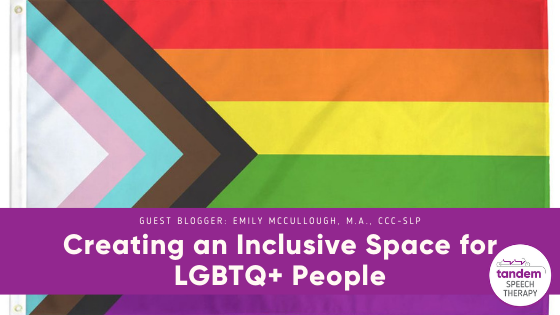
For this June 2021 blog post, Tandem Speech Therapy is grateful to welcome Emily McCullough, MA, CCC-SLP as a guest blogger. Emily owns Parade Pediatric Therapy in Austin, TX. As a member, herself, of the LGBTQ+ community, Emily brings a unique perspective for us during Pride Month.
As a queer person growing up in the rural South, my life experience has included lots of hiding and constant scanning around the environment to see if I was physically and emotionally safe. I remember times when I’d listen closely to conversations to see if someone mentioned a TV show that had LGBTQ+ characters, or I’d look for physical signs of acceptance, like a rainbow flag. Most of the time the signs weren’t there and I had to do a lot of guesswork to figure out when I was safe, with whom, and in what environments.
I started Parade so that I could provide a safe, affirming space for all kids and families on their communication journey, including those in the LGBTQ+ community. I’m actively working to recognize systemic racism and ableism and how these affect my practice as a speech therapist. My goal in creating Parade is to provide a space where all kids thrive and feel comfortable in who they are.
If you are interested in incorporating affirming practices in your work as an SLP or educator, here are some things you can do. Please keep in mind that I am not speaking for the entire LGBTQ+ community as we are extremely diverse and all have different experiences. I am on a continual journey of learning about how to best support my community.
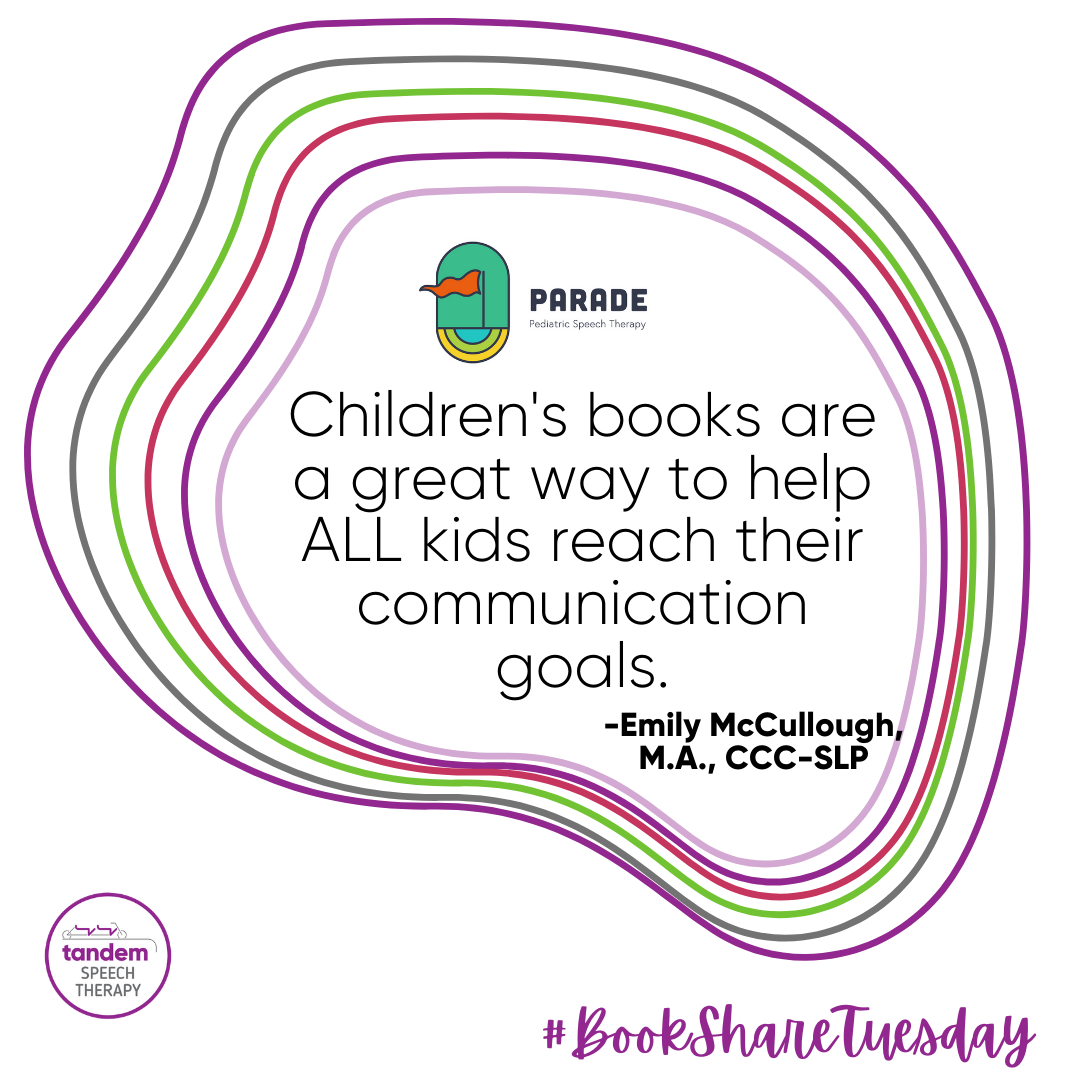
1. Educate yourself. Learn more about how to affirm the LGBTQ+ community by listening to LGBTQ+ voices and engaging in continuing education. I’ve been taking courses by Transplaining and I’ve learned so much about inclusive practices for transgender people. You can also check out Q Inclusion. GSLEN and Welcoming Schools are also great resources for learning about how to incorporate affirming practices into your work. Listen to The Queer SLP podcast to hear our voices and experiences in the field.
2. Use books that feature LGBTQ+ characters. I can only imagine what it would have meant to me if I had seen a queer character in a book as a child. When choosing books for therapy, choose some books that have representation from the LGBTQ+ community. Check out this and this blog post for some of my favorites and for additional resources on affirming books.
3. Be Visible. In addition to educating yourself, and if it’s safe for you to do so, put affirming language and signage in your office, on your work badge, or on your website so that LGBTQ+ people know that they are welcome and that you are an affirming provider. You can display an inclusive flag, or include your pronouns by your name on your website or email signature.
4. Evaluate Your Documentation. Take a look at your intake forms where you work. Are they LGBTQ+ affirming? As a queer person, I know the pain of healthcare intake forms that make assumptions, such as asking about my “husband” and not including space or checkbox on the form for me to list my wife. There are so many other ways that our intake forms can be harmful. Check out Transplaining’s course on inclusive intake forms.
5. Be An Advocate. As a white, cisgender queer person, I have a lot of privileges that others in the LGBTQ+ community don’t have. For example, 2021 is now the worst year in the U.S. for anti-transgender legislation. Take the time to learn about any anti-LGBTQ+ bills that are going on in your state and contact your representatives to advocate for the LGBTQ+ community.
Emily McCullough, MA, CCC-SLP is pictured at left with Tandem Speech Therapy’s owner Emily Cohen, MA, CCC-SLP. They recently met, for the first time, in Austin, TX where both practices are based, to learn how to support each other as SLPs (and now friends). Parade Pediatric Therapy offers online speech therapy in TX and IL. At Parade, Emily McCullough specializes in using evidence-based research, strong clinical skills, and compassion to help children and teens find their voice to communicate who they truly are. Does your child have difficulty with communication? Contact Emily from Parade for a free consultation.
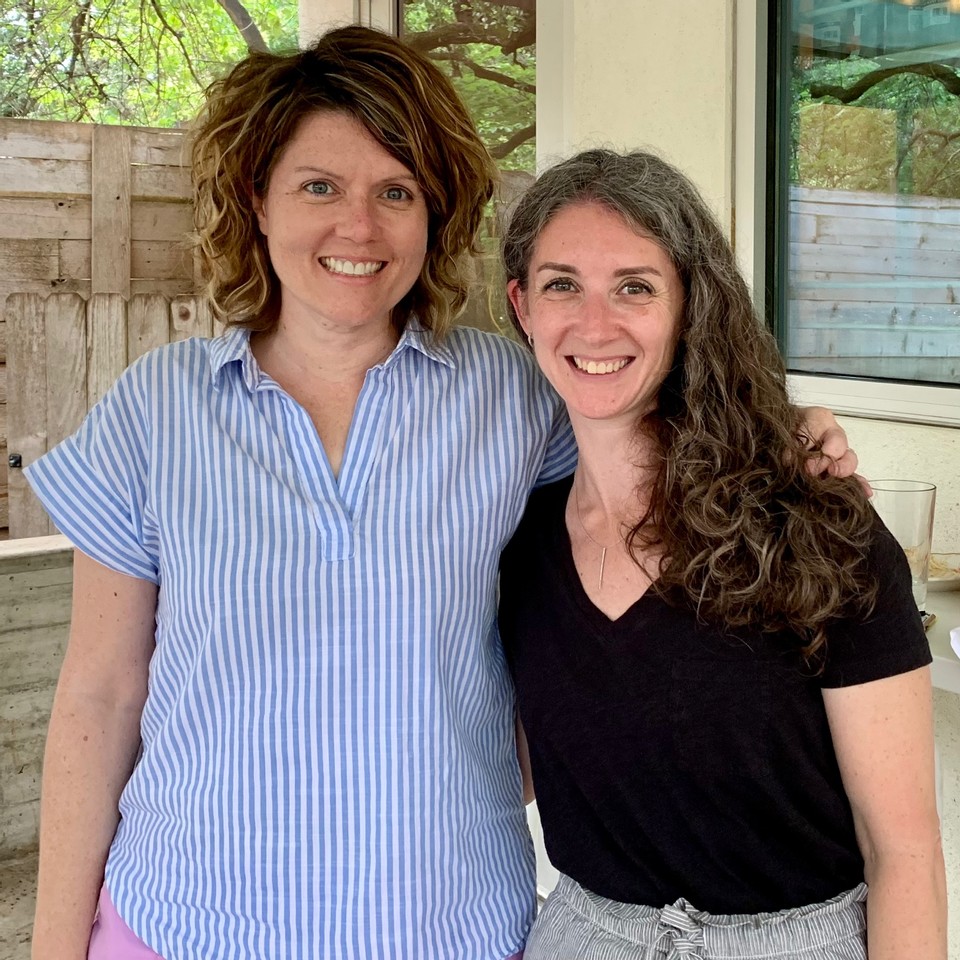
Start Playing With Purpose
Learn how to purposefully and intentionally interact with your child during play and help them increase opportunities for speech and language development with our Playing with Purpose book!
